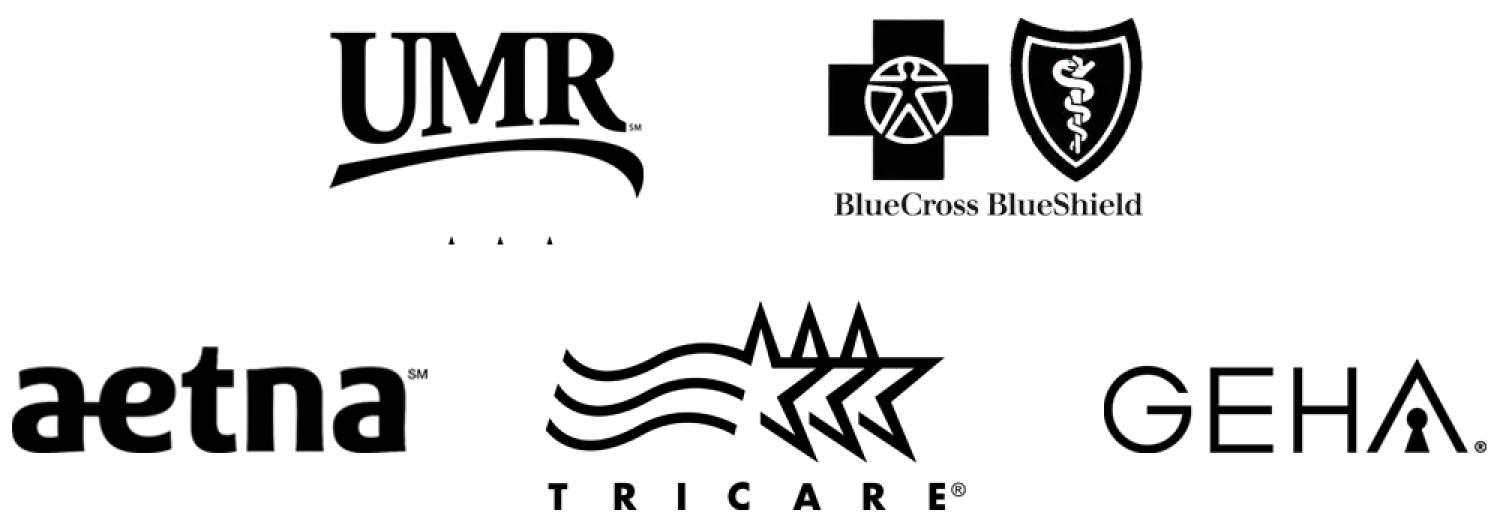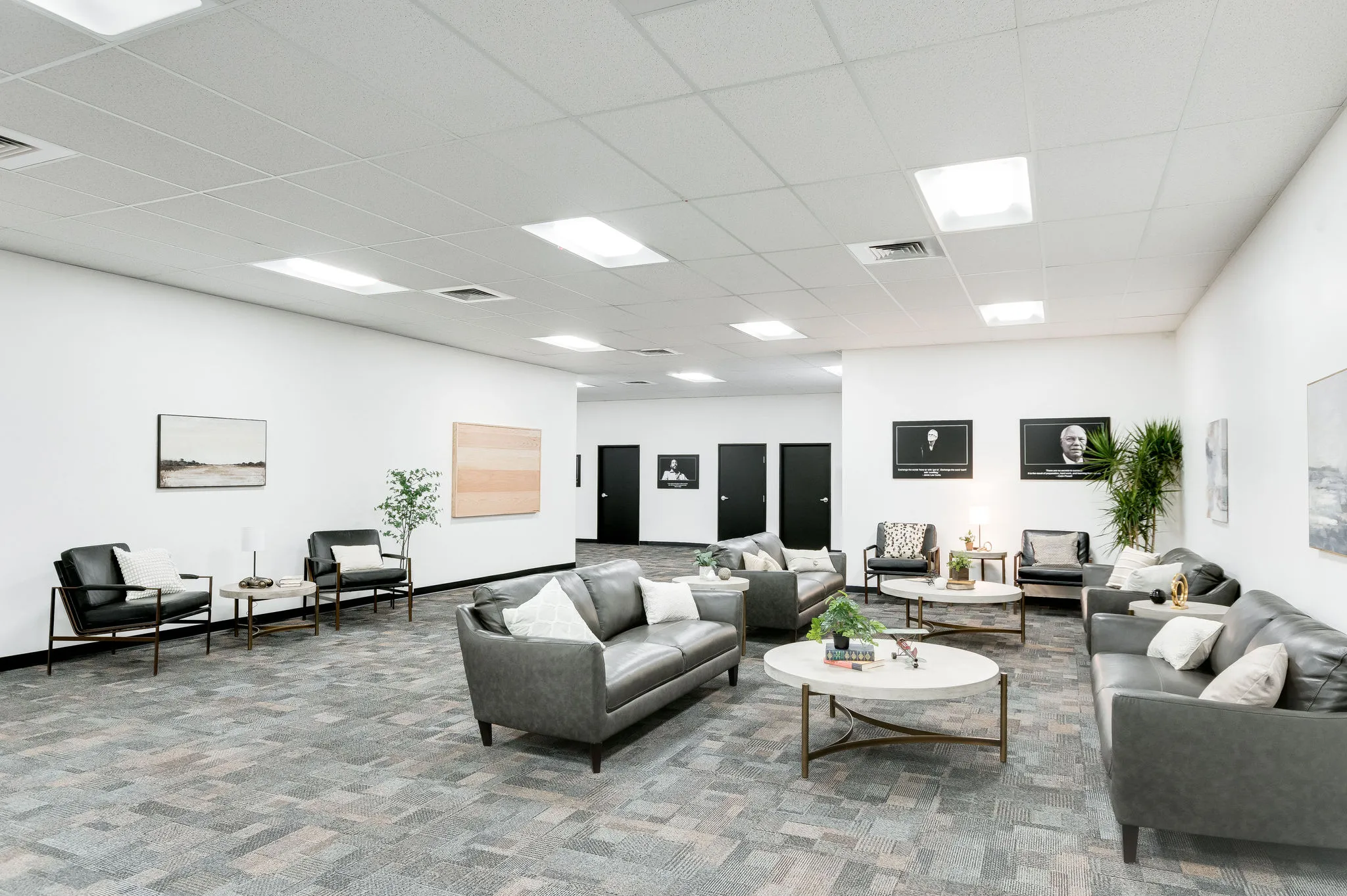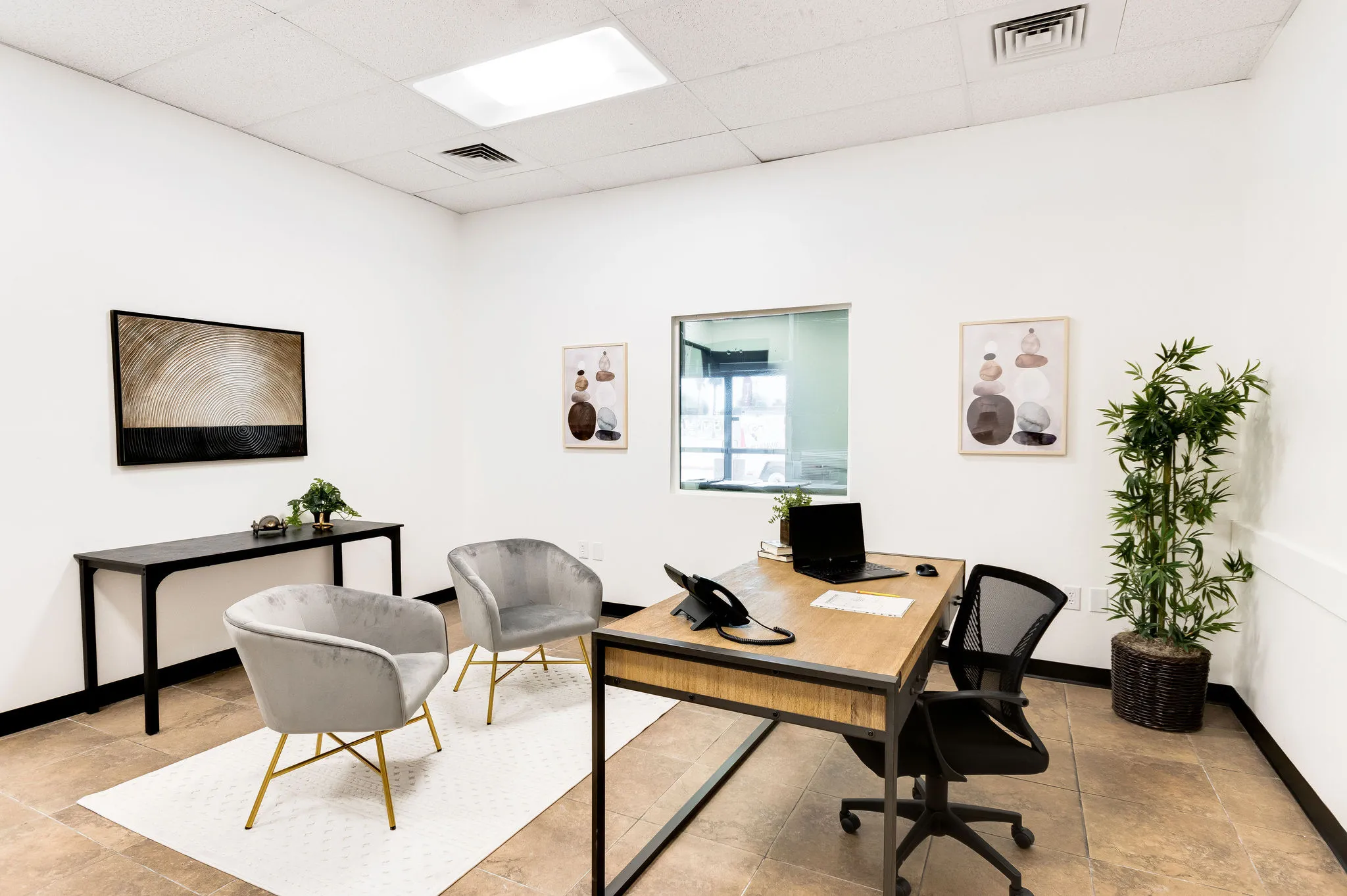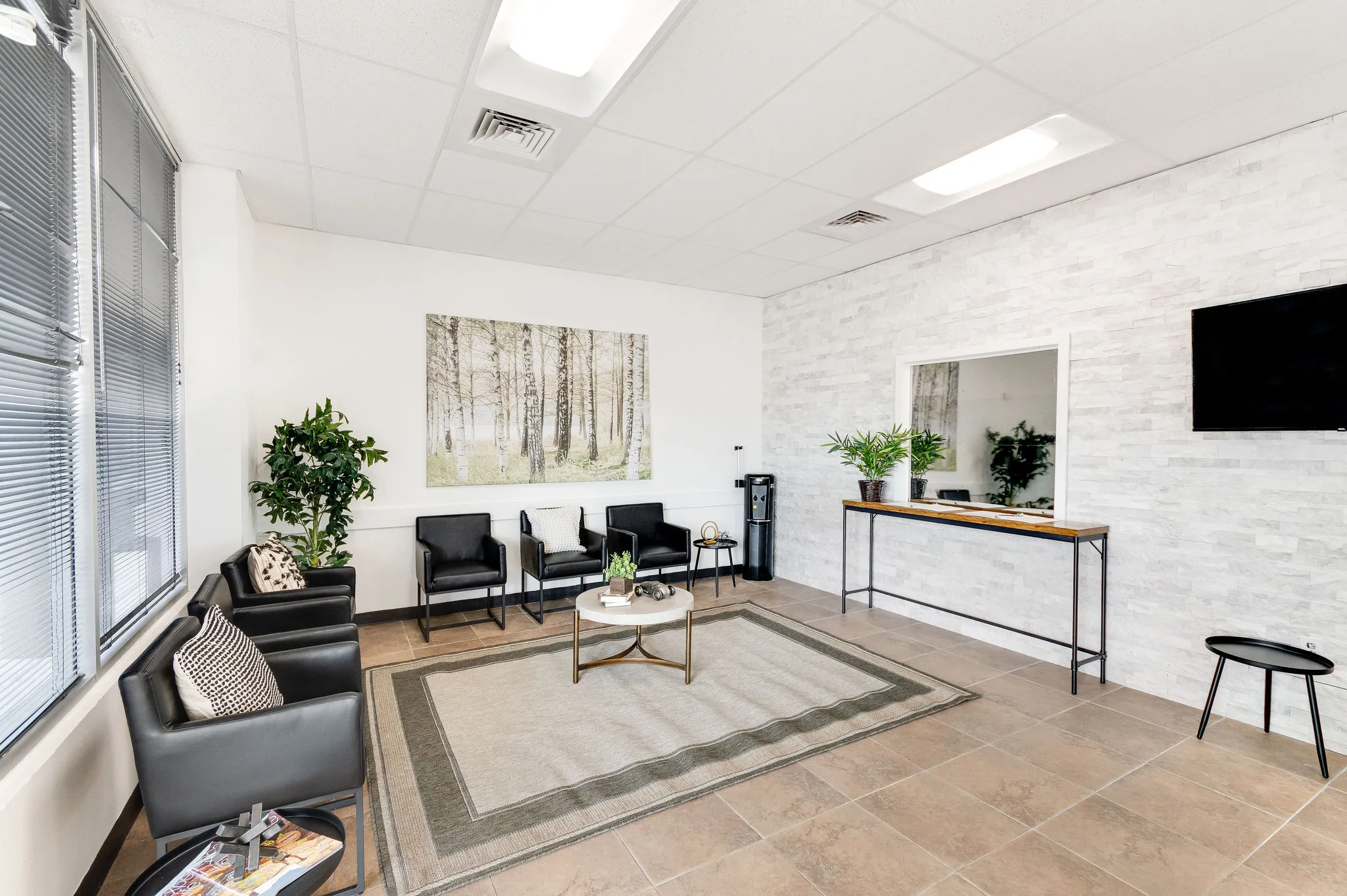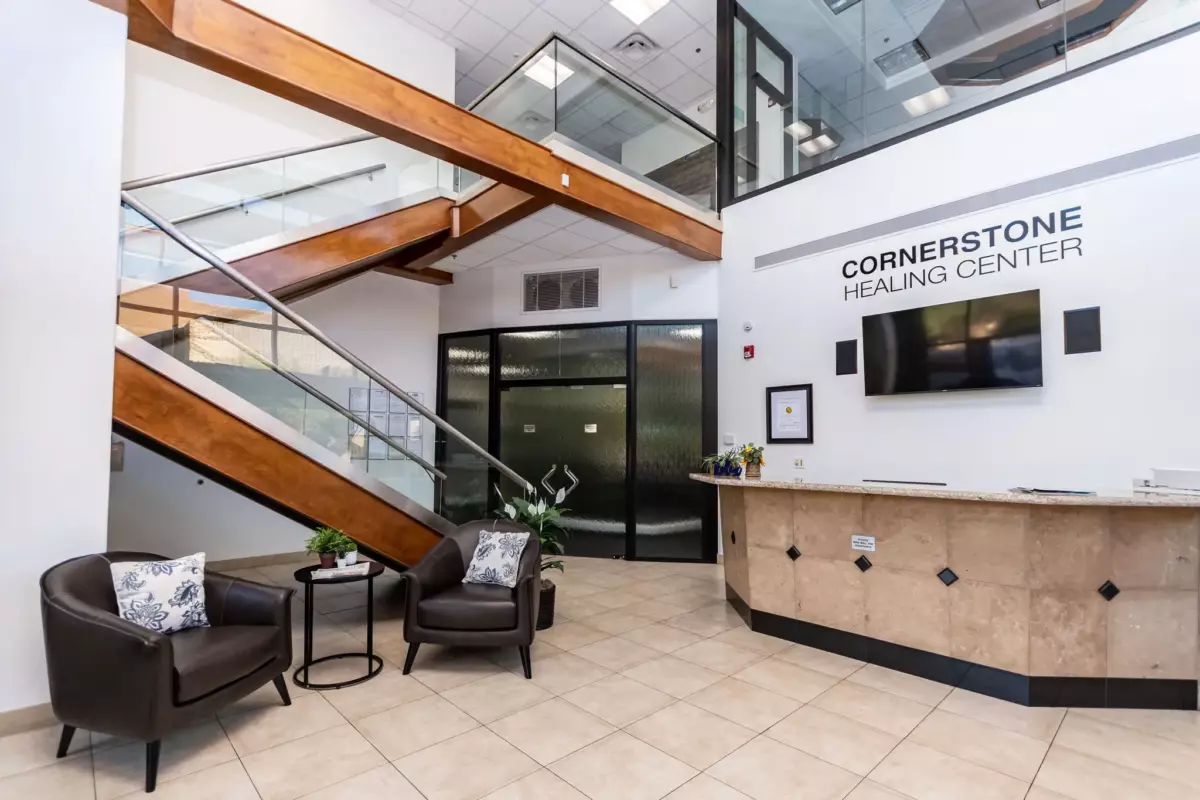Cornerstone
Understanding United Healthcare Drug Treatment Coverage
Learn about using your UHC insurance policy to cover substance abuse treatment
Alcohol and Drug Treatment Coverage with UHC
When you or a loved one is struggling with addiction, navigating treatment options and insurance coverage can be overwhelming.
UnitedHealthcare (UHC) provides coverage for alcohol and drug treatment.
This guide will help you understand network coverage, claims approval, plan types, deductibles, and financial hardships.
Understanding your insurance coverage will better prepare you to focus on recovery and lead a healthier, substance-free life.
Jump to the following sections
View our addiction treatment locations
Addictions we treat at Cornerstone
UHC drug treatment coverage
In-Network
Out-of-Network
When considering addiction treatment, it’s essential to understand the benefits and drawbacks of choosing an in-network provider with your UHC policy. In-network treatment centers have a contractual agreement with UHC, which often translates to lower out-of-pocket costs. These providers have negotiated rates with the insurance company, resulting in reduced copays, coinsurance, and deductibles.
In-network providers have met UHC’s quality standards, ensuring that you receive appropriate care. However, the downside is that you may need more options when selecting a specific treatment center or location. Researching and confirming that the in-network facility offers care and services that align with your needs is crucial.
Using your UHC policy to choose an out-of-network treatment center has advantages and disadvantages. One of the main benefits is that you have a broader range of facilities, allowing you to prioritize factors such as location, specialization, and treatment philosophy. This flexibility can be precious if you’re seeking a specific type of care or environment that may not be available through in-network providers.
However, the financial implications of going out-of-network can be significant. You may face higher deductibles, copays, and co-insurance rates; in some cases, you might be responsible for more of the treatment costs. When considering an out-of-network provider, it’s essential to weigh the potential benefits against the financial impact and discuss your options with UHC and the treatment center.
Information about UHC Plan Types
Health Maintenance Organization (HMO)
UHC’s HMO plans typically require choosing a primary care physician (PCP) who coordinates your care and provides referrals to specialists when necessary.1
In most cases, HMO plans only cover treatment from in-network providers, except in emergencies.
While HMO plans often have lower monthly premiums and out-of-pocket costs, they offer less flexibility regarding provider choice.2
Preferred Provider Organization (PPO)
PPO plans offered by UHC provide more flexibility than HMO plans.
You can generally receive care from both in-network and out-of-network providers, although choosing an in-network provider usually results in lower out-of-pocket costs.
With a PPO plan, you don’t need to select a PCP or obtain referrals to see specialists.3
Exclusive Provider Organization (EPO)
UHC’s EPO plans combine features of HMO and PPO plans. Like HMOs, EPO plans typically don’t cover out-of-network care except in emergencies.
However, like PPOs, you usually don’t need to choose a PCP or get referrals for specialist care.
EPO plans often have lower monthly premiums compared to PPO plans.4
Point of Service (POS)
UHC’s POS plans blend aspects of HMO and PPO plans.
You’ll need to select a PCP who coordinates your care, but you can see out-of-network providers if you’re willing to pay higher out-of-pocket costs.
Seeing in-network providers or obtaining a referral from your PCP generally results in lower costs.5
High Deductible Health Plan (HDHP)
UHC’s HDHP plans feature lower monthly premiums but higher deductibles than other plan types.
These plans can be paired with a health savings account (HSA) to help cover out-of-pocket expenses.
Once you meet your deductible, your plan starts sharing the cost of covered services.6
Medicaid & Medicare Plans
UHC also offers managed care plans for Medicaid and Medicare beneficiaries.
These plans are designed to coordinate care and provide additional benefits beyond what’s typically covered by standard Medicaid and Medicare programs.
Eligibility and coverage details vary by state and plan type.
Understanding Policy Definitions
Deductible
Co-Insurance
Out-of-Pocket Max
A deductible is the amount you pay for covered healthcare services before your UHC insurance plan starts to pay.
For example, if your plan has a $1,000 deductible, you must pay the first $1,000 of covered services yourself.
Once you’ve met your deductible, your insurance will share the cost of covered services according to your plan’s co-insurance or copayment requirements.
It’s important to note that some plans may have separate deductibles for in-network and out-of-network care, and not all services may be subject to the deductible.
Co-insurance is the percentage of the cost you pay for a covered healthcare service after you’ve met your deductible.
For instance, if your UHC plan has a 20% co-insurance and you’ve already met your deductible, you’ll pay 20% of the allowed amount for a covered service while your insurance pays the remaining 80%.
Co-insurance percentages can vary depending on the type of service and whether you receive care from an in-network or out-of-network provider.
The out-of-pocket max, or the out-of-pocket limit, is the most you’ll have to pay for covered healthcare services in a plan year. This includes your deductibles, coinsurance, and copayments.
Once you reach your out-of-pocket max, your UHC insurance plan will pay 100% of the allowed amount for covered services for the remainder of the plan year. Like deductibles, some plans may have separate out-of-pocket limits for in-network and out-of-network care.
Understanding your plan’s out-of-pocket max is crucial, as it provides a safety net against high medical costs.
UHC Approval Process for Treatment
Verification
Submission
Adjudication
Payment
Appeal
Before beginning addiction treatment, the first step is to verify your UHC insurance coverage. The treatment center you choose will contact UHC to confirm your active policy and determine the specifics of your coverage, such as deductibles, copayments, and co-insurance. They will also inquire about any prior authorization requirements for the services you need. Once your coverage is verified, the treatment center will inform you of any out-of-pocket expenses you may be responsible for, helping you understand what amount you will have to pay (if any) to get treatment. To streamline this process, you can provide your insurance information to the treatment center in advance.
After you receive treatment services, the treatment center will submit a claim to UHC on your behalf. This is part of the claims process, where the treatment center provides detailed information about the services offered, such as the dates of treatment, the types of services rendered, and the associated costs. The treatment center’s billing department will handle the claims submission process, ensuring that all necessary documentation is included and the claim is submitted promptly. In most cases, claims are submitted by the treatment center you choose, allowing you to focus on your recovery while they handle the administrative tasks.
Once UHC receives the claim from the treatment center, they will review it to determine if the services provided are covered under your plan. This process is called adjudication. During adjudication, UHC will verify that the services were medically necessary, that an eligible provider provided them, and that they fall within the terms of your coverage. If the claim meets all the required criteria, UHC will approve the claim and proceed with payment.
If your claim is approved during adjudication, UHC will issue payment to the treatment center according to your plan’s coverage terms. This payment will be made directly to the treatment center, and you will be responsible for any remaining out-of-pocket expenses, such as deductibles, copayments, or coinsurance. The treatment center will then bill you for these remaining costs. Understanding your financial responsibilities before beginning treatment is important to avoid any surprises down the road.
If your claim is denied during adjudication, the treatment center’s billing department will typically file an appeal on your behalf. Treatment centers are well-versed in handling denials and will do their best to ensure that denied services are eventually paid. If necessary, they will gather additional documentation and present a solid case for UHC for why the denied services should be covered. Treatment centers generally strive to provide only those services likely approved by your insurance, minimizing the risk of denial. However, if a denial does occur, you can trust that the treatment center’s billing department will work diligently to resolve the issue and secure payment for the services you received.
Get Help Paying Your Deductible
File a Hardship With UHC
If you’re struggling to pay your deductible for drug treatment, one option is to file a hardship with UHC. A hardship is a situation that prevents you from affording your medical expenses, such as job loss, a family crisis, or unexpected financial burdens. To file a hardship, contact UHC directly and provide documentation of your financial situation. If approved, UHC may waive or reduce your deductible, making necessary treatment more accessible. Remember, the success of your hardship application depends on your specific circumstances and UHC’s assessment.
Assistance Programs & Payment Plans
Many drug treatment centers offer assistance programs and payment plans to help make treatment more accessible and affordable. These programs can help you manage out-of-pocket expenses, such as deductibles and co-insurance. Some centers offer sliding-scale fees based on your income, while others may provide scholarships or grants to eligible individuals. Treatment centers may allow you to spread your payments over time through a payment plan, making it more manageable to cover your share of the costs. When selecting our treatment center, inquire about available assistance programs and payment plans.
Community Resources & Charitable Organizations
In some cases, community resources and charitable organizations may be able to help you cover your drug treatment deductible. These organizations recognize the importance of accessible and affordable addiction treatment and may provide financial assistance to those in need. Some examples include faith-based organizations, local non-profits focused on addiction recovery, and national charities dedicated to helping individuals overcome substance abuse. Research the organizations in your area and contact them to learn more about their assistance programs.
FAQs About Using UHC Benefits
to Pay for Alcohol and Drug Treatment
What types of addiction treatment does UHC cover?
UnitedHealthcare (UHC) typically covers a comprehensive range of addiction treatment services to support individuals in their recovery journey.
These services include:
- Inpatient Rehab: This involves intensive, residential treatment programs where patients stay at a facility and receive 24-hour care. These programs are designed to provide a structured environment with medical supervision, therapy sessions, and support groups to help individuals recover from addiction.
- Outpatient Programs: These programs allow patients to live at home while attending treatment sessions during the day or evening. Outpatient services can vary in intensity, including Partial Hospitalization Programs (PHP), Intensive Outpatient Programs (IOP), and standard outpatient therapy. This flexibility allows individuals to continue with their daily responsibilities while receiving treatment.
- Detox: Detoxification services are crucial for safely managing withdrawal symptoms as individuals cease substance use. UHC typically covers medical detox, which involves supervision by healthcare professionals to ensure the patient’s safety and comfort during withdrawal.
- Medication-Assisted Treatment (MAT): MAT combines behavioral therapy and medications to treat substance use disorders. Medications like methadone, buprenorphine, and naltrexone can help reduce cravings and withdrawal symptoms, making it easier for individuals to maintain sobriety. MAT is often used for opioid addiction but can also be effective for alcohol and other substance use disorders.
- Counseling and Therapy: UHC covers individual and group therapy sessions integral to addiction treatment. These sessions provide psychological support, coping strategies, and tools to address the underlying issues contributing to substance use.
- Aftercare and Relapse Prevention: Aftercare services are essential for maintaining long-term recovery. These may include follow-up therapy sessions, support groups, and other resources to prevent relapse and provide ongoing support.
However, the specific services covered can vary depending on your UHC plan.
It is essential to review your plan details and speak with a UHC representative to understand the exact coverage and any potential out-of-pocket costs associated with your treatment.
Will I need to get pre-authorization for addiction treatment?
In many cases, you will need to obtain pre-authorization from UHC before starting addiction treatment.
This means that UHC will review your case to determine if the proposed treatment is medically necessary and covered under your plan.
At Cornerstone, we proudly accept UHC, so there is no need to worry about finding an alcohol and drug rehab that accepts your insurance.
Please complete our UHC insurance verification to start your recovery journey with us today!
How much will I have to pay out-of-pocket for addiction treatment?
Your out-of-pocket costs for addiction treatment will depend on your specific UHC plan.
Factors impacting your costs include deductibles, copayments, coinsurance, and the maximum out-of-pocket.
Please get in touch with UHC or us at Cornerstone for more information about your out-of-pocket expenses.
What happens if UHC denies my claim for addiction treatment?
If UHC denies your claim for addiction treatment, don’t lose hope!
Our treatment center’s billing department will likely file an appeal on your behalf.
They will work to gather additional information and make a strong case for why the services should be covered.
Our treatment center is experienced in navigating the appeals process and will do its best to ensure you receive the care you need.
Sources
CLINICALLY REVIEWED

Lionel Estrada, LISAC
CLINICAL DIRECTOR
Lionel, our Clinical Director is a Licensed Independent Substance Abuse Counselor (LISAC) with over 4 years at Cornerstone, specializes in addiction and mental health. Trained in EMDR therapy, he employs a trauma-informed, empathetic approach to address the underlying causes of these issues.
- Read our Editorial Policy
Still have questions about treatment?
Our admissions specialists are here to explain the process, answer any questions you may have, and ensure you’re getting the help you need to live a healthy life free from addiction.

